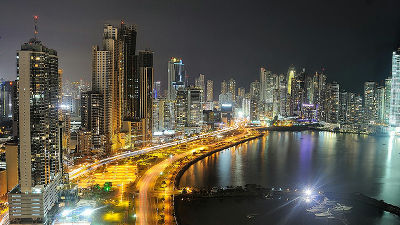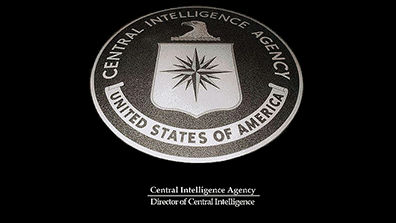Journalist explains tips for finding owners of ``shell companies'' that large companies and wealthy people abuse for tax purposes
Tips for Linking Shell Companies to their Secret Owners – Global Investigative Journalism Network
https://gijn.org/stories/tracking-shell-companies-secret-owners/
Discovering shell companies and their ultimate benefit owners (UBOs) has become a key area of investigation for journalist organizations and networks such as ICIJ and the Organized Crime and Corruption Reporting Project (OCCRP) . Mr. Keogh gave a solo talk at NICAR 2024 , an annual conference on data analysis journalism held in the United States in March 2024, where he shared tips for tracking the people at the top of shady organizations and their overseas assets. did.
First, Mr. Keogh points out that it is important to consider, ``What is written in the documents submitted by shell companies?'' Even if a company is established in Panama or the British Cayman Islands, which are tax havens, documents are always required for a shell company to become incorporated, so documents submitted by a shell company can provide clues for investigation. thing.
When large companies and millionaires establish a shell company, they generally ask agents called 'formation agents' to fill out the necessary procedures and documents. These agencies undertake the establishment of shell companies at the request of wealthy clients, and provide bank accounts, the name of a substitute director, secretarial services, etc. for an additional fee. However, basic details such as the official company address, the real names of some directors, and documentation regarding the nature of the business must be filled out correctly.
In fact, in 2021, Mr. Keogh and his colleagues were investigating the overseas assets of Jordan 's King Abdullah II , and discovered that the king had acquired as many as 14 luxury homes in Britain and the United States through a network of shell companies established in tax havens. It was discovered that he was in secret possession . The deciding factor in this investigation was that the relevant documents contained the king's name, date of birth, and palace address.
Mr Keogh said investigative journalists were looking for the 'real beneficiaries' behind shell companies, not those listed as directors or owners. “A person in the Netherlands may order a formation agent in Hong Kong to set up a shell company in the Cook Islands or Singapore, and the formation agent may then provide secretarial services, a temporary address and the name of a nominal director. The person who is listed as a director of over 100 companies may be an Azerbaijani taxi driver. He has no connection with the company, but may be receiving some money or working with someone. They may be relatives,'' he said, explaining that shell company representatives are often acting as scapegoats.
![]()
Specifically, Mr. Keogh listed the following ``Tips for investigating shell companies.''
◆Search for company names and individual names in the database
Investigative journalists begin by searching for the company or individual name they want to research in a database such as
◆Think like a billionaire
Keogh argues that research can be done more efficiently by considering what billionaires and real beneficiaries are interested in. 'The thing about billionaires is that what they can buy is limited and very predictable. They often want luxury properties in London or the south of France, big yachts and jets, , artwork, sports teams, etc.” Therefore, it will be easier to find the hidden assets of wealthy people by simply searching for the ``wealthiest areas in a particular jurisdiction.''
◆Check ICIJ's research database
ICIJ has released
If you enter a company name, person's name, address, etc. into these databases, you can find related data, but just because a person is listed in the database does not mean that the person has committed some kind of crime or is involved in fraudulent activities. It does not mean that you will Further investigation is required to interpret the data, as it only indicates that the company has a company in the relevant area or is listed as a related party.
◆Check the OCCRP database
Aleph , OCCRP's database, stores a huge amount of data spanning public institutions in 141 countries, and can search for corporate registration deletion and various court records. By making full use of this database, it seems possible to link specific companies or people to crimes.
◆Try various spellings
For example, when researching people and properties associated with the town of Dún Laoghaire, journalists should try spellings such as ``Dún Laoire'' and ``Dunleary'' in addition to ``Dún Laoghaire.' ' ``If you try different spellings of place names, you might be surprised at how many search results you find,'' says Keogh.When looking up an address overseas, don't just type in the English word as is, but also translate the local words into English. He advises people to try different methods, such as changing the spelling of a person's name or changing the spelling of their name.
◆Investigating cross-border business connections
Searching databases such as Open Ownership , Register of Overseas Entities , and Tenders Electronic Daily can be helpful in finding hidden cross-border business connections.
◆Investigate relatives of millionaires
In particular, Russian Olgarichs often have assets in the names of their relatives, so it is effective to investigate not only the millionaires themselves but also their relatives. The RuPEP database profiles the relationships of thousands of political figures, sanctioned individuals, their relatives, corporations, etc. across Russia, Belarus, Kazakhstan and other countries, and is a useful starting point for research, Keogh said. states.
![]()
Finally, Keogh advises that 'persistence' is important for investigative journalists. “True beneficiaries really trust the formation agents to protect them from scrutiny, and they share a lot with them. They send it in and their address can be leaked or put in a database,” Keogh said.
Related Posts:
in Note, Posted by log1h_ik







